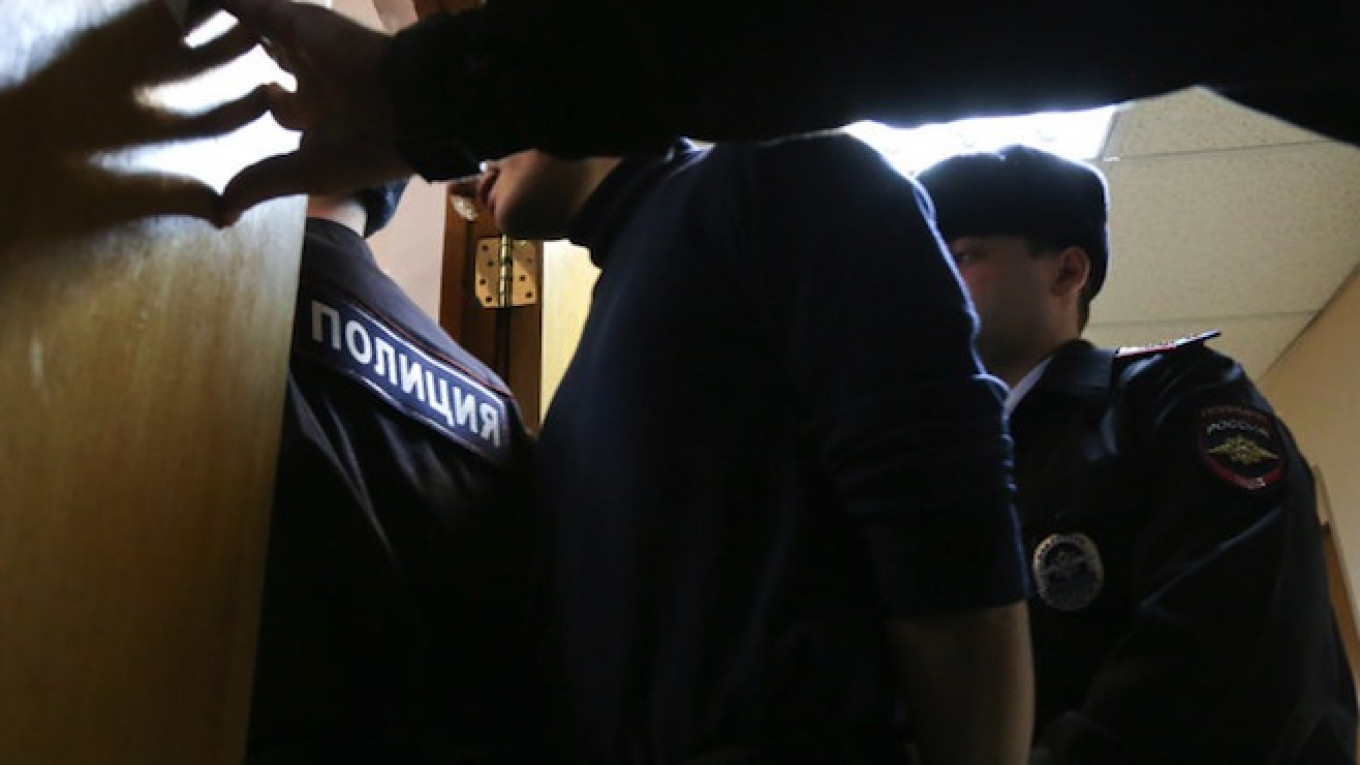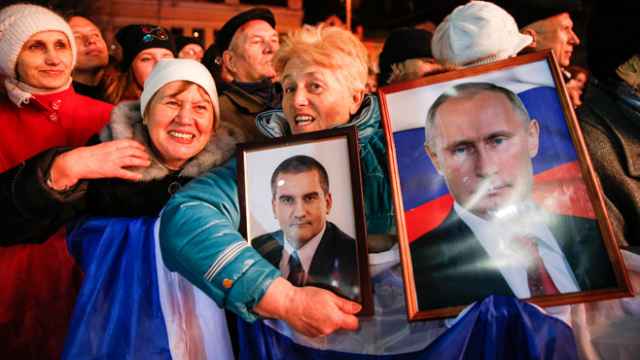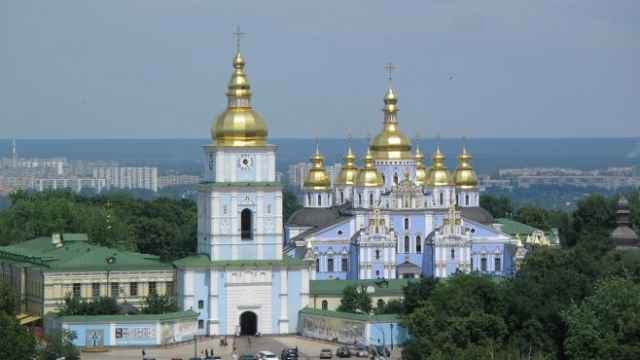Police have detained the head of a Russian consumer rights NGO who attracted the ire of President Vladimir Putin by describing Crimea as an “occupied” territory, and accused a Kremlin-linked group of running commercial ventures from Moscow's Christ the Savior Cathedral.
Mikhail Anshakov of the Society for Consumer Rights Protection said on his Facebook page late on Thursday night that police seized him off a train and escorted him to a police station in central Moscow's Khamovniki district. He was later released with the obligation to later appear before district bailiffs, his lawyer Rosa Barshina said, Interfax news agency reported Friday.
Though he was not immediately informed of any charges, the arrest was likely linked to the case against him for criticizing the Foundation for Christ the Savior Cathedral, Anshakov said on Facebook.
The activist was convicted of slander in 2013 and sentenced to a fine of 100,000 rubles ($3,100 at the time) for a newspaper interview and an article on his organization's website, arguing that Christ the Savior Cathedral had been turned into a “business center.” Anshakov refused to pay the fine imposed by what he has described as an absurd verdict.
Police have an outstanding warrant for his arrest, issued in August, on charges of “illegal actions regarding property that has been arrested or is subject to confiscation,” his lawyer said, Interfax reported.
In publications and interviews, Anshakov accused the Foundation for Christ the Savior Cathedral and Vasily Poddevalkin, the organization's chief and a former employee of the Kremlin's property management department, of running a “massive and serious scam” from within the central Moscow cathedral.
“Poddevalkin is de facto a manger of all the property of this temple compound,” the activist told independent Novaya Gazeta weekly in a 2012 interview. “He has effectively turned the temple compound into a business center. You know, there are dry cleaners, car wash outlets, laundries above the altar, a firm selling seafood — more than 15 organizations in all.”
Anshakov's NGO tried to sue the foundation, arguing that merchants in the temple were a violation of consumers' rights. But the suit was thrown out of court, and prosecutors brought “libel” charges against Anshakov.
“The court told us that commerce is not commerce if it is carried out by the Russian Orthodox Church, but is an unpaid mutual exchange of gifts on the basis of a suggested price,” Anshakov said in an interview with the BBC.
Amid the court battles, Anshakov was beaten by unidentified assailants and hospitalized with a concussion and bone fractures to his skull and arm — an attack he maintains was prompted by his dispute with the Christ the Savior Foundation, BBC Russian news service reported following the December, 2012 attack.
Anshakov's NGO incited a response from Putin this summer with their release of a tourism memo that urged Russian travelers to take precautions when holidaying in “occupied” Crimea, and advised that they seek permission from Ukrainian authorities when visiting the peninsula that Moscow annexed last year.
Putin condemned the NGO over the memo, saying the organization was acting in the interests of foreign states over those of Russia.
Anshakov's arrest Thursday coincided with Putin's admission to human rights activists that Russia's law on “foreign agents” might be too broad and might need to be rewritten.
Under the law, adopted in 2012, non-governmental organizations that receive funding from abroad and engage in vaguely defined political activity must register as “foreign agents” — a Soviet-era term that for decades had been used to mean a spy — and identify themselves as such in any publications.
“The concept of 'political activity' should not be blurry; it should not be flexible, but should be unambiguously understood,” Putin conceded during a meeting Thursday with members of the presidential human rights council, according to a transcript published on the Kremlin website.
“This concept, if it's not clearly formulated, should not be used to fit everything that displeases the authorities, the Justice Ministry or anybody else,” Putin said. “I agree that this needs thinking about.”
A Message from The Moscow Times:
Dear readers,
We are facing unprecedented challenges. Russia's Prosecutor General's Office has designated The Moscow Times as an "undesirable" organization, criminalizing our work and putting our staff at risk of prosecution. This follows our earlier unjust labeling as a "foreign agent."
These actions are direct attempts to silence independent journalism in Russia. The authorities claim our work "discredits the decisions of the Russian leadership." We see things differently: we strive to provide accurate, unbiased reporting on Russia.
We, the journalists of The Moscow Times, refuse to be silenced. But to continue our work, we need your help.
Your support, no matter how small, makes a world of difference. If you can, please support us monthly starting from just $2. It's quick to set up, and every contribution makes a significant impact.
By supporting The Moscow Times, you're defending open, independent journalism in the face of repression. Thank you for standing with us.
Remind me later.






